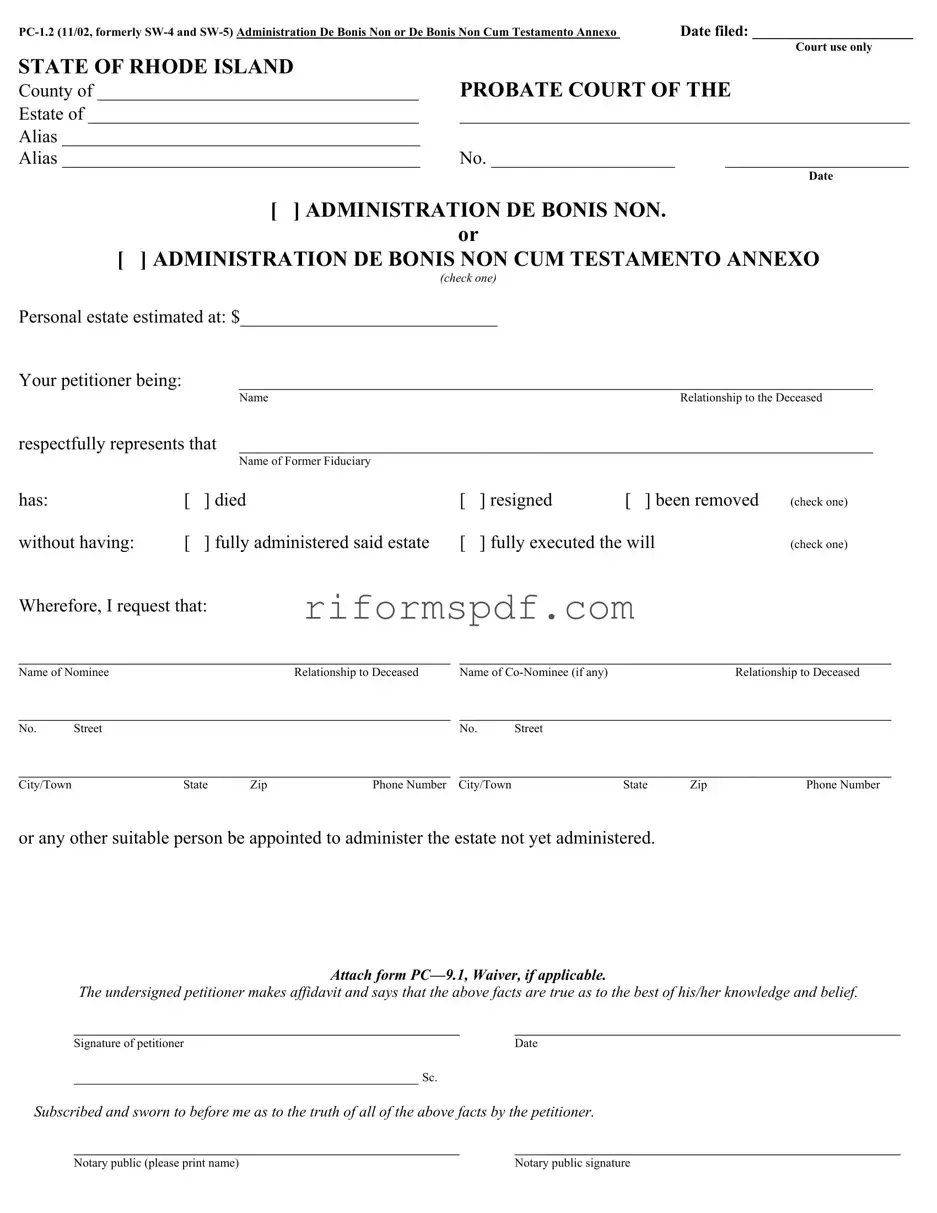Blank Rhode Island Pc 1 2 PDF Template
The Rhode Island PC-1.2 form is a legal document used in probate court to request the appointment of a new administrator for an estate that has not been fully managed. This form is particularly relevant when a previous fiduciary has died, resigned, or been removed without completing their duties. By filing this form, individuals can ensure that the estate is properly administered and that the wishes of the deceased are honored.
Launch Editor

Blank Rhode Island Pc 1 2 PDF Template
Launch Editor
Finish the form now and be done
Edit Rhode Island Pc 1 2 online and skip the paperwork.
Launch Editor
or
⇓ PDF Form
